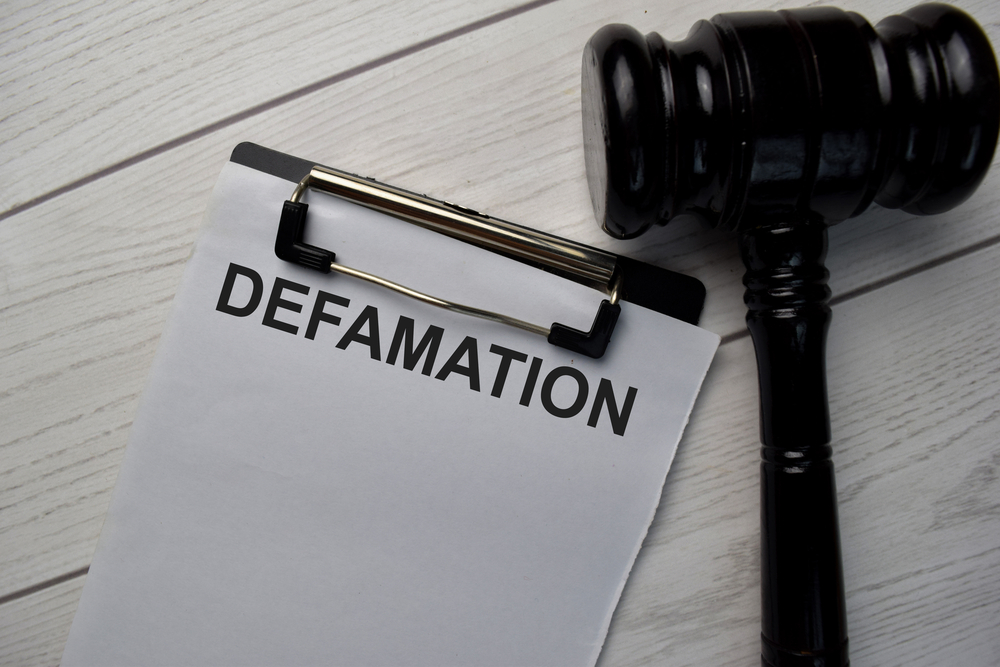 The last year has brought up many questions over what qualifies at free speech and what does not. In a world driven by social media, false statements are easy to find and can often look like legitimate facts if one fails to research it themselves. But when a false statement impacts your business’s reputation, it’s important to consider whether or not you have grounds for a defamation claim. Here are the 5 key elements that your case must have in order for you to pursue a business defamation case.
The last year has brought up many questions over what qualifies at free speech and what does not. In a world driven by social media, false statements are easy to find and can often look like legitimate facts if one fails to research it themselves. But when a false statement impacts your business’s reputation, it’s important to consider whether or not you have grounds for a defamation claim. Here are the 5 key elements that your case must have in order for you to pursue a business defamation case.
A False Statement of Fact
The first element that you must be able to show in your case is that the defendant made “a false statement of fact.” This might sound contradictory, but what this means is that the individual presented something untrue as factual. Oftentimes, a person might dispute a defamation claim by stating that they were simply “sharing an opinion.” However, there’s a large difference between expressing an opinion and making a false statement. Let’s compare:
A false statement of fact must also be very clearly about your business (if the above statement were put on your diner’s Google reviews page, this is clear enough) and you must be able to prove it is false. For the example above, your diner may simply have to reveal how you make your soup.
The Statement Is Published
In terms of defamation, “published” does not mean it has to be in print. Rather, it simply means that it has to have been made public in some way. This could be posting it online or putting it in a newspaper, or it could simply mean telling another person.
Knowledge and Intent
Typically, in a business defamation case, you must be able to prove that the defendant knew that their statement was false and/or that they made the false statement with intent to harm your business. In the example given above, the defendant would have no valid reason to believe your diner puts paint thinner in your soup due to the simple absurdity of the statement.
If, however, they stated, “This diner reheats day-old soup and tosses in leftovers for the next day,” this could be seen as a reasonable assumption. You would need to be able to prove that the individual knew that the statement was false, and they only made the claim in an effort to cause harm to your business.
Lack of Privilege
There are certain exemptions to the requirements above. The first of these is proof of truth; if the defendant can prove that their statement is true, it is therefore not defamatory, and the business’s defamation claim would not hold up.
Additionally, statements made during legal proceedings are usually privileged against any defamation claims. So, if the individual above made their defamatory statement while suing your diner for the contents of your soup, their statement would be exempt from a defamation claim. Barring any of the above-mentioned types of “privilege,” however, the statement can still be pursued in a defamation case.
Measurable Damage
Finally, you must be able to prove that the defamatory statement had some measurable damage for your business. Lost business or opportunities for business both qualify as measurable damages for companies. For example, if your diner was in the process of signing a franchising deal, but the opportunity was lost after the injurious statements were made, this would be measurable damage. If traffic to your diner plummeted significantly after the statement was published, you could likely make a case that the defamatory statement was the cause, but this might be somewhat more difficult to prove.
However, if someone made a false statement that meets all of the aforementioned criteria on their social media account and it received almost no interaction, and your business saw no negative effects of their statement, you would not have a solid case in court.
If you can prove all five of the above points, your defamation claim is likely to succeed. To get the professional support that you need in your business defamation case, contact the Harr Law Firm today. Our experienced attorneys can help to gather the necessary evidence that proves these false statements damaged your business’s reputation and income in a measurable way, so that you can be properly compensated and restore your company’s good name. Give us a call today to schedule your first appointment.